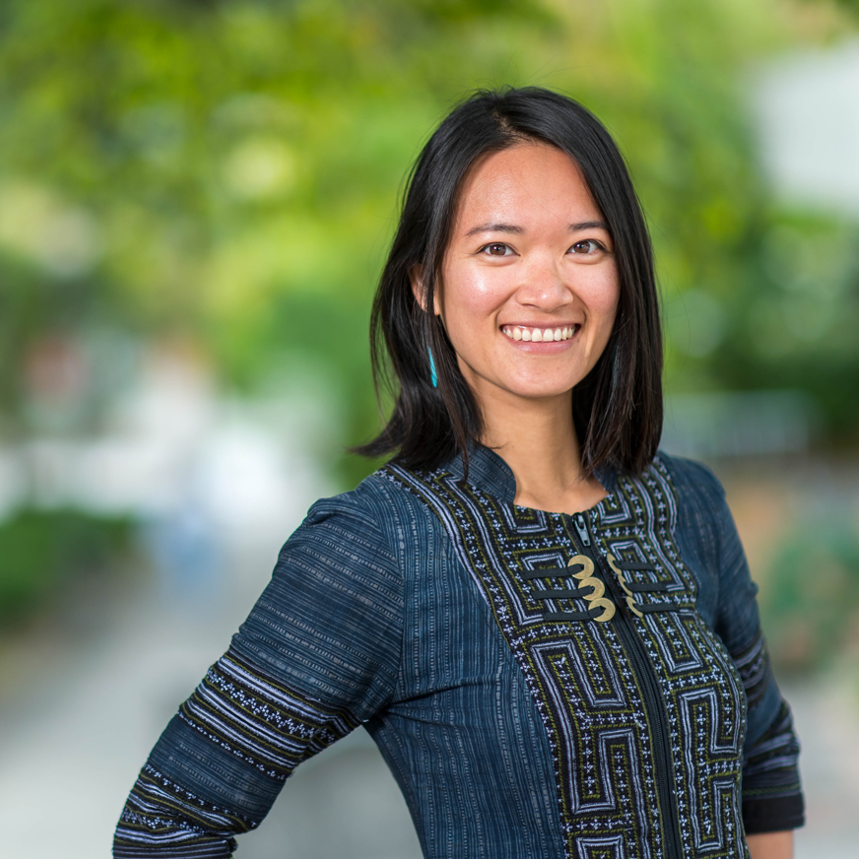1. When Indigenous and Western sciences collide: re-storying/restoring Mekong expertise through community-engaged research
2. The role of happiness in pro-environmental action
Time: 12:30pm to 1:20pm
Location: Beaty Museum Allan Yap Theatre (Basement, 2212 Main Mall). Please check in at front desk on main floor before going downstairs.
No food or drinks allowed in the Theatre.
View Video Recording.
Talk summary:
Indigenous science and traditional knowledges enact different worlds from their Western scientific counterparts. Their exclusion in modern freshwater and biodiversity governance is not only symptomatic of entrenched colonial structures and mechanisms, but also poses existential threats to life on Earth, particularly as Indigenous-stewarded lands and waters sustain some of the world’s richest biodiversity. In this presentation, Rapichan will examine what a community-based Mekong River and fish monitoring project combined with ethnographic research of Indigenous ethnic Mekong River dwellers can reveal about expertise, intimate knowing, and being in a world that is alive. How might river science (and management) look differently when recentring and restoring ways of knowing and worlding otherwise? Rapichan will also share some reflections on preliminary work needed to engage with Indigenous, ethnic, and/or local communities in generative ways.

Bio:
Rapichan (Ta) Phurisamban is an interdisciplinary rivers scholar of Tai, Mon, and Chinese ancestry, and a PhD candidate in Terre Satterfield’s lab at the Institute for Resources, Environment and Sustainability. Their current work draws on critical ethnography, community-engaged research, and decolonial and Indigenous theories to understand the Mekong River as a living entity, and how Indigenous Mekong peoples’ ways of knowing and living with the river can inform the terms of engagement beyond modern freshwater and biodiversity governance. Through their involvement in decolonial environmental justice and journey into intersectional veganism, they recognize their obligations to foreground in their research the voices, expertise, and experiences of humans and more-than-humans who have been marginalized and dismissed. They continue to learn, many times through mistakes, how to cultivate ethical relations with peoples and places where they live and work.
Talk summary:
Despite the climate emergency, very few people are acting on climate change. One potential reason for inaction is that climate communication often focuses on the negative effects of climate change and the need to make personal sacrifices. Such communication can make people retreat from the issue rather than engage with it. To address this, we combine happiness science with climate science in a new happy climate approach that focuses on the happiness benefits of pro-environmental action.

Bio:
Jade Radke (she/her) is an MA student in the Behavioral Sustainability Lab at the Institute for Resources, Environment, and Sustainability (IRES) and is supervised by Dr. Jiaying Zhao. Prior to joining IRES, she received her BA in Honours Psychology and specialized in Applied Behavior Analysis. Her current research focuses on the use of positive reinforcement to elicit pro-environmental behavior change. She is a recipient of the CGS-M Fellowship 2022-2023 and the Indigenous Graduate Fellowship 2022-2024.